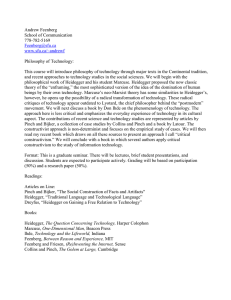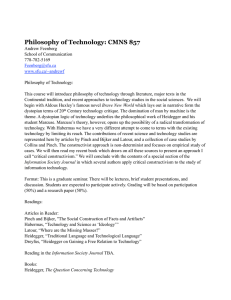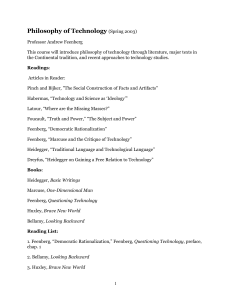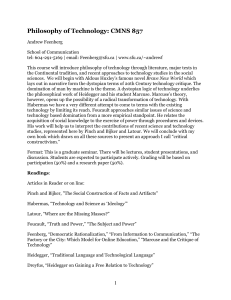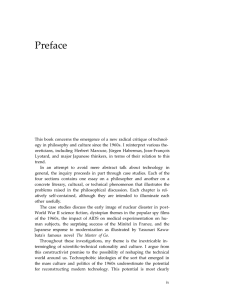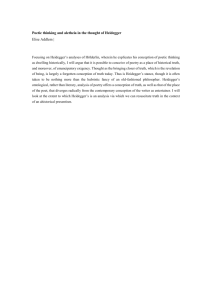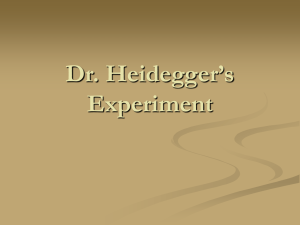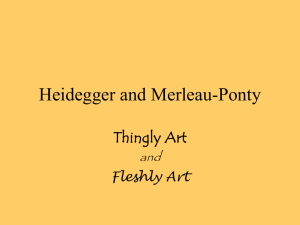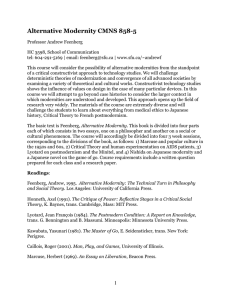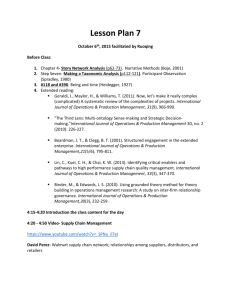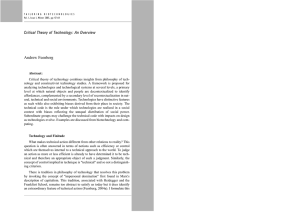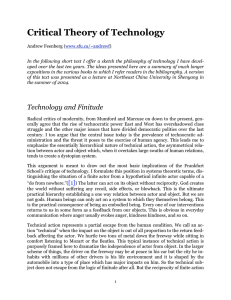Full Syllabus
advertisement
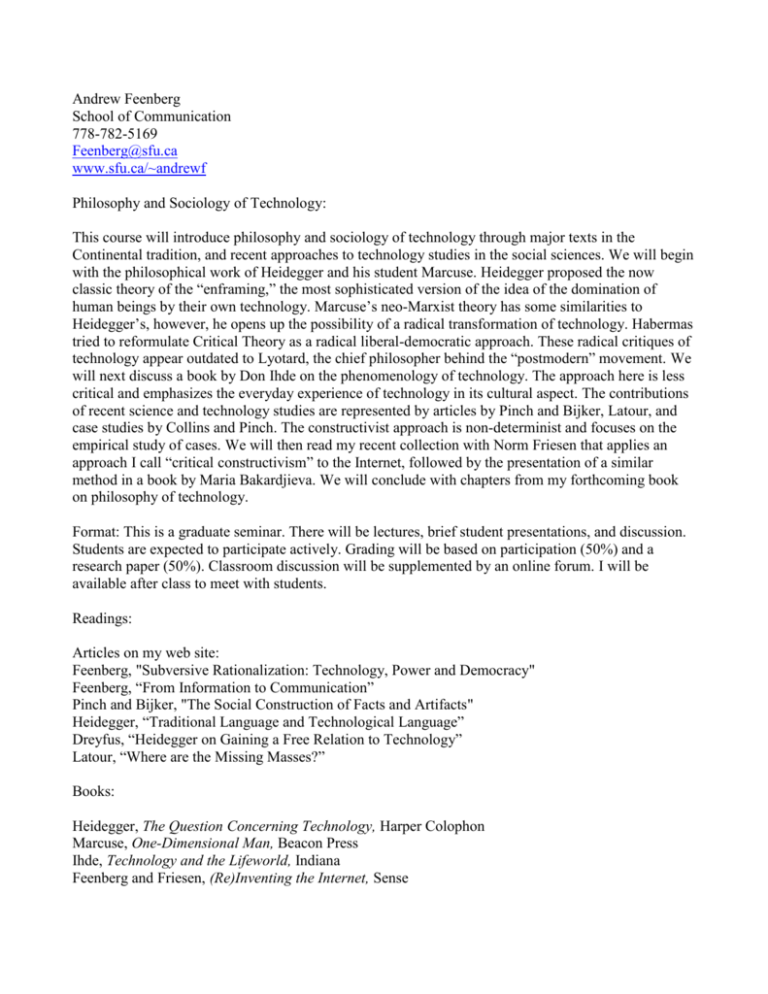
Andrew Feenberg School of Communication 778-782-5169 Feenberg@sfu.ca www.sfu.ca/~andrewf Philosophy and Sociology of Technology: This course will introduce philosophy and sociology of technology through major texts in the Continental tradition, and recent approaches to technology studies in the social sciences. We will begin with the philosophical work of Heidegger and his student Marcuse. Heidegger proposed the now classic theory of the “enframing,” the most sophisticated version of the idea of the domination of human beings by their own technology. Marcuse’s neo-Marxist theory has some similarities to Heidegger’s, however, he opens up the possibility of a radical transformation of technology. Habermas tried to reformulate Critical Theory as a radical liberal-democratic approach. These radical critiques of technology appear outdated to Lyotard, the chief philosopher behind the “postmodern” movement. We will next discuss a book by Don Ihde on the phenomenology of technology. The approach here is less critical and emphasizes the everyday experience of technology in its cultural aspect. The contributions of recent science and technology studies are represented by articles by Pinch and Bijker, Latour, and case studies by Collins and Pinch. The constructivist approach is non-determinist and focuses on the empirical study of cases. We will then read my recent collection with Norm Friesen that applies an approach I call “critical constructivism” to the Internet, followed by the presentation of a similar method in a book by Maria Bakardjieva. We will conclude with chapters from my forthcoming book on philosophy of technology. Format: This is a graduate seminar. There will be lectures, brief student presentations, and discussion. Students are expected to participate actively. Grading will be based on participation (50%) and a research paper (50%). Classroom discussion will be supplemented by an online forum. I will be available after class to meet with students. Readings: Articles on my web site: Feenberg, "Subversive Rationalization: Technology, Power and Democracy" Feenberg, “From Information to Communication” Pinch and Bijker, "The Social Construction of Facts and Artifacts" Heidegger, “Traditional Language and Technological Language” Dreyfus, “Heidegger on Gaining a Free Relation to Technology” Latour, “Where are the Missing Masses?” Books: Heidegger, The Question Concerning Technology, Harper Colophon Marcuse, One-Dimensional Man, Beacon Press Ihde, Technology and the Lifeworld, Indiana Feenberg and Friesen, (Re)Inventing the Internet, Sense Lyotard, The Postmodern Condition, Minnesota Collins and Pinch, The Golem at Large, Cambridge Bakardjieva, The Internet Society, Sage Reading List by week: 1. Feenberg, Introduction to the course, "Subversive Rationalization: Technology, Power and Democracy" http://www.sfu.ca/~andrewf/books/Subversive_Rationalization_Technology_Power_Democracy.pdf 2. Heidegger, “Traditional Language and Technological Language,” Dreyfus, “Heidegger on Gaining a Free Relation to Technology,” Heidegger, The Question Concerning Technology, pp. 3-35 3. Marcuse, One-Dimensional Man, Introduction, Preface, pp. 1-120 4. Marcuse, One-Dimensional Man, pp. 123-257 5. Lyotard, The Postmodern Condition, Feenberg and Friesen, (Re)Inventing the Internet, chapter 3, “From Information to Communication” 6. Ihde, Technology and the Lifeworld, pp. 1-123 7. Ihde, Technology and the Lifeworld, pp. 124-224 8. Pinch and Bijker, "The Social Construction of Facts and Artifacts," Latour, “Where are the Missing Masses?” 9. Collins and Pinch, The Golem at Large, chapters 2, 6,7 10. Bakardjieva, The Internet Society, pp. 1-116 11. Feenberg and Friesen, (Re)Inventing the Internet 12. “Radical Philosophy of Technology,” chapter 2, 5, and 8
